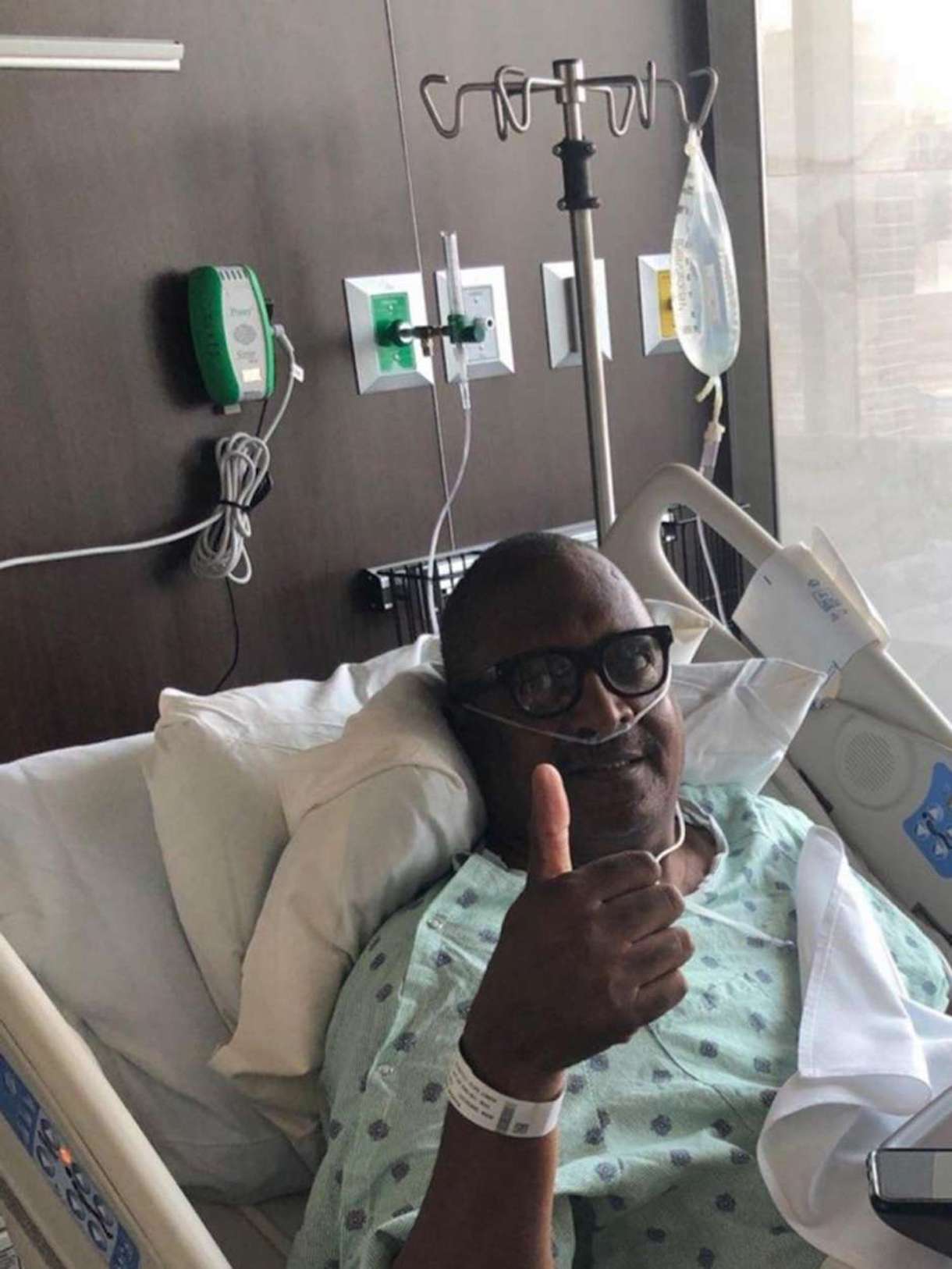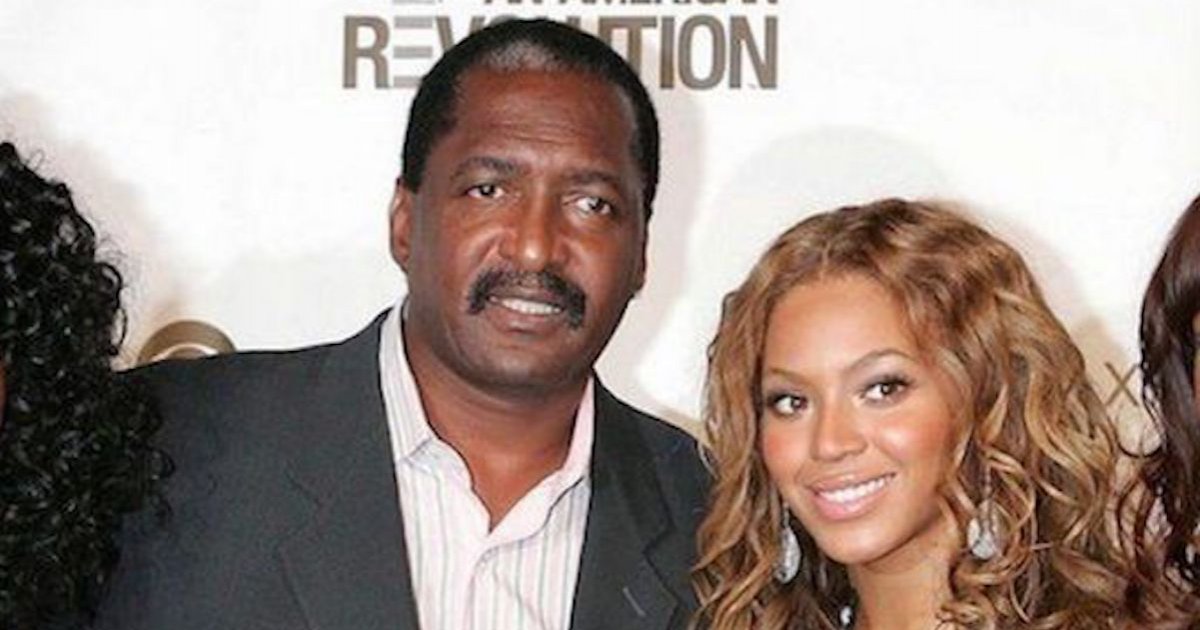Matthew Knowles has a message for Black men: Yes, you can get breast cancer. Although it’s rare, African American men face a statistically higher risk of breast cancer while also experiencing lower survival rates.
“A whole lot has to change in the education of men about breast cancer,” he told PEOPLE. “I want to save lives, especially in the Black community,” Knowles says.
Read More
Mathew Knowles underwent a mastectomy in 2019.
A Tiny Drop Of Blood
He knows this now, but in 2019, when a tiny drop of blood appeared on his shirt, Knowles never imagined he could have breast cancer.
He’d sold medical imaging equipment early in his career, so Knowles — founder of Music World Entertainment — knew the drop of blood was a breast cancer warning sign. Still, his 2019 diagnosis shocked him.
RELATED: Breast Cancer Survivor, Mathew Knowles, Drops Video On Coronavirus Spread
Knowles was lucky: He’d caught his breast cancer at stage 1A, before it had spread to the lymph nodes. He underwent a mastectomy, but he would not need chemotherapy.
A Family History of Cancer
Knowles revealed that he carries the BRCA2 gene mutation in an October 2019 GMA interview His aunt and mom had died of breast cancer, but when he looked into his family history, he found a great aunt had died of breast cancer — and four of his father’s six brother’s had died of prostate cancer, according to PEOPLE. “If I’d known about the BRCA gene, I would’ve had a double mastectomy,” he said.
Now, he screens for prostate cancer, pancreatic cancer, melanoma, and breast cancer. Testing revealed that his daughters, Beyonce and Solange, do not have the gene mutation.
RELATED: When Should I Get A Mammogram?
“The rest of my life, I have to be very much aware and conscious and do all of the early detection … constant mammograms, constant prostate exams, constant MRI for the rest of my life.” He’s made lifestyle changes as well, cutting out alcohol and increasing exercise.
About 3% of African-Americans carry the BRCA2 gene mutation — compared to 1% for BRCA1.
Breast Cancer — What Men Need to Know
He also had an important message for black men, for whom breast cancer is also more common. “We don’t have enough men come forward … but it has to be early detection. And I can’t over-emphasize the word early.” According to American Cancer Society statistics, both black men and women tend to have a worse prognosis when it comes to the disease.
Michael Singer says men tend to ignore breast cancer symptoms because they’re embarrassed to ask a doctor about a “woman’s disease.”
Men are also more likely to ignore breast cancer symptoms. Breast cancer survivor, Michael Singer (above) uses his motorcycle to start conversations with men about breast cancer: “Guys, if you find a lump, get it checked!” He and his wife also lobby Congress every year to ask for more funding for the National Cancer Institute.
Breast Cancer Drug Trials: Where Are The Men?
While early detection is key with male breast cancer, the Food and Drug Administration (FDA) has also pressed to include men in breast cancer drug trials,releasing a guidance document urging
RELATED: Beyoncé's Fans Pray For Her Father Why Men Ignore Breast Cancer Symptoms
the medical industry to do a better job. Most breast cancer drug trials enroll either few male patients or none at all.
What is BRCA2?
Mathew Knowles’ BRCA2 gene mutation is one of two — BRCA1 and BRCA2 – linked to an increased risk of multiple types of cancer — most notably, breast and ovarian cancer in women. In men, gene mutations can increase the risk of prostate cancer and breast cancer. In both men and women, they increase pancreatic and stomach cancer risk.
RELATED: Should I Get Genetic Testing to Assess My Risk for Cancer?
"A BRCA mutation is a defect in your ability to repair a double-strand break (in your DNA),” Dr. Rebecca Arend, Associate Scientist at the University of Alabama, Birmingham, told SurvivorNet, When the BRCA gene has a mutation, cells have a tougher time repairing their DNA — and the damaged DNA can lead to cancer.
Who Can Have a BRCA Mutation?
The BRCA mutation is not a “women-only” gene. Because BRCA mutations aren't tied to the X or Y sex chromosome, you're just as likely to inherit the mutation from your father as you are from your mother. Ethnicity also plays a role in how likely someone is to have a BRCA mutation.
RELATED: BRCA Mutations Can Increase the Risk for the Type of Cancer Alex Trebek Has, Too
Studies have found a higher prevalence of the mutations among people with African ancestries and people of Ashkenazi Jewish descent than among those in the general U.S. population. "Genetic testing can empower you with such important information," Dr. Beth Karlan, gynecologic oncologist at UCLA Medical Center, told SurvivorNet in a recent interview.
Women with an inherited BRCA gene mutation have a much higher risk of getting breast cancer, ovarian cancer, and cancer of the fallopian tubes. Given those heightened risk factors, women with BRCA mutations have several decisions to make. Some women choose to go the “Angelina Jolie route” and have both of their breasts removed as a preventative measure (called a “prophylactic mastectomy“). This procedure can reduce risk by up to 95 percent.
The fact that Beyonce and Solange don’t have the BRCA2 mutation means that they don’t have the high, 69 percent chance of getting breast cancer. But, like all of us, they should still follow the screening guidelines that other women follow, such as getting annual mammograms.
Learn more about SurvivorNet's rigorous medical review process.


